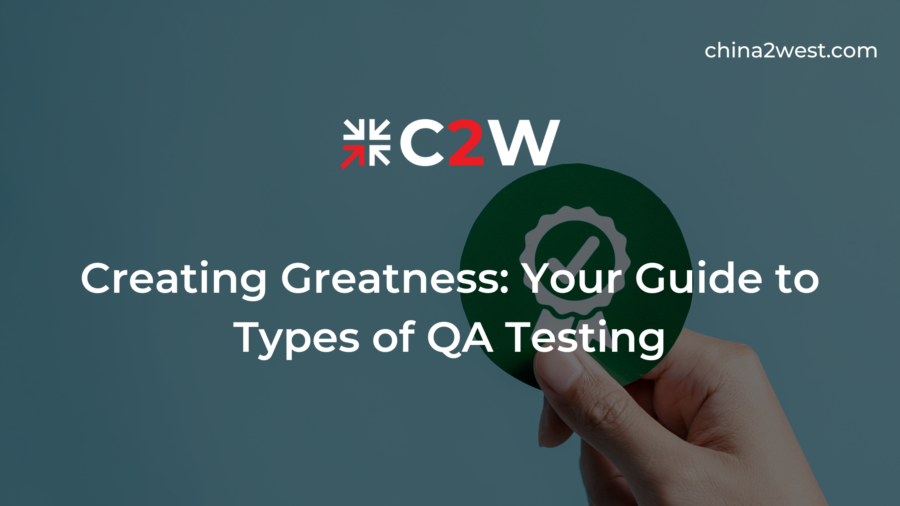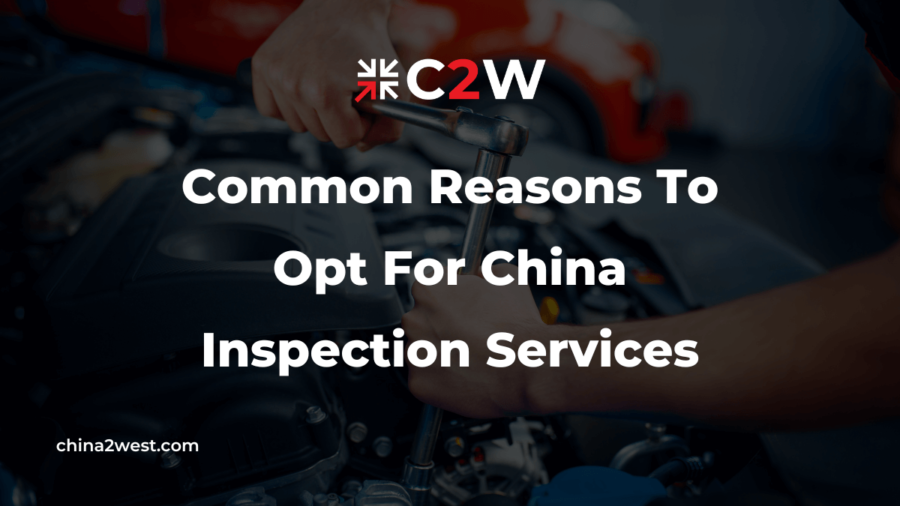Defective products are a genuine concern for businesses. Online retailers, for example, saw return rates hit a massive 16.6%. In short, companies are counting costs.- both for their finances and their reputations.
That’s why choosing a manufacturer that puts quality first is more important than ever. To do that, you need to know about their QA test process.
Here are the most common types of QA testing that manufacturers use and why they are vital for your product quality.
Visual Inspections
The foundation of any testing is also one of the oldest testing methods. And that’s the visual inspection. It’s about getting an expert eye to look at the products leaving a manufacturing production line.
This is a manual but highly effective way to check for defects or abnormalities.
The visual inspection is often at the start of the QA process. The inspectors have formal training, so they’ll know what to look for in the products.
Depending on the product, they may examine it with the naked eye or magnifying glasses. The inspector will look for things out of alignment or problems with the appearance (like the color).
This QA testing is highly valuable because it replicates the customer’s first experience seeing the product. It’s a chance to catch problems and avoid defects getting into the hands of the end user.
Functional Tests
Functional tests make sure that the product operates as it should. If you claim something on the product packaging, you must ensure it works as promised.
It’s why this type of QA testing is essential. No seller wants to face the situation of complaints from customers because the product isn’t functional.
When a QA team conducts this testing, they’ll check the product’s performance under specific conditions.
That way, they can cover different scenarios. For example, a phone manufacturer will test their product under extreme temperatures.
The goal of functional testing is to identify any possible malfunctions. It is there to ensure the product reaches the highest possible quality standards before it reaches the customer.
Non-Destructive QA Tests
A non-destructive test checks specific properties of a product. This type of test will reassure the manufacturer of the product’s reliability, including any material and component.
It might include particular technology like X-rays to conduct more advanced tests.
The purpose of non-destructive tests is to spot internal flaws with a product before it leaves a manufacturing unit. For example, it can help show tiny cracks that may not be visible to the naked eye but could weaken the material.
So it’s there for the product quality but, more importantly, as part of the product safety. It can spot hidden dangers or weaknesses before a product reaches the shop shelves.
A Dimensional Inspection
The dimensional test is there to measure a product.
It’s part of a range of tests to ensure the product meets the expected standard. And it helps a team assess whether a production line has consistency and reliability between batches.
This test involves specialist tools like calipers to ensure a high degree of accuracy. A millimeter short in length may not seem much, but it can be significant.
Take a pair of shoes, for example. Or a phone case or A4 carrying folder.
These products need to be highly precise in their measurements. That is why a dimension inspection is a standard part of any manufacturer’s QA process.
Material Analysis
A suitable material composition can make a product safe and robust. Therefore, analyzing this material is one vital step of the manufacturing process.
A material analysis will examine this in microscopic detail to check material properties. Take kitchen knives, for example. Their performance and longevity are intrinsically tied to the quality of the metal.
During a material analysis, a testing team can check things like impurities in the metal that could cause the knives to rust. They’ll also ensure the metal properties can withstand wear and tear or heat.
Environmental Tests
It’s not always easy to predict how customers will use a product. You don’t always know about the environment, for example.
That’s why testing under different environmental conditions increases the likelihood a product will withstand many different scenarios.
That might be electronic products that need to work equally well in Scandinavia’s cool temperatures and Sub-Saharan Africa’s heat.
Or an automotive part that needs to withstand extreme temperatures.
It could mean, for example, a salt spray for a product to check for corrosion or UV exposure to assess possible damage. Environmental robustness is increasingly crucial for businesses that have a global customer base.
Performance Tests
Quality products need to perform well consistently. If you buy a phone charger that only works for a week, you’ll likely return it to the shop. Performance also means reaching expected standards.
A car will experience wear and tear over the years, but you would still expect the vehicle to drive the same distance on a fuel tank.
So, how do manufacturers test this? The answer is that they push a product to its limits as part of performance testing.
A QA team will aim to discover the peak performance of the product. These tests will also help the product design team spot the weak areas if it’s not performing as it should.
Stress and Load Testing
Finally, a QA team will test the breaking point of a product. That may involve pressure testing to add force or pressure to a product to see what it can withstand.
It might mean checking the highest or lowest temperature a product can tolerate before it breaks or conducting leak testing.
Product manufacturers often need this QA process for safety labeling on a product. For example, a child’s high chair will only work for a certain weight and size limit.
Types of QA Testing: Finding the Best Manufacturer
When looking for a manufacturer for your product, ask about the types of QA testing they undertake. Going with a trusted company is essential to ensure your product meets the exemplary standards and is safe and robust.
As one of the leading companies for manufacturing and sourcing from China, China 2 West is trusted by many companies seeking quality products. Contact us now for more information.




